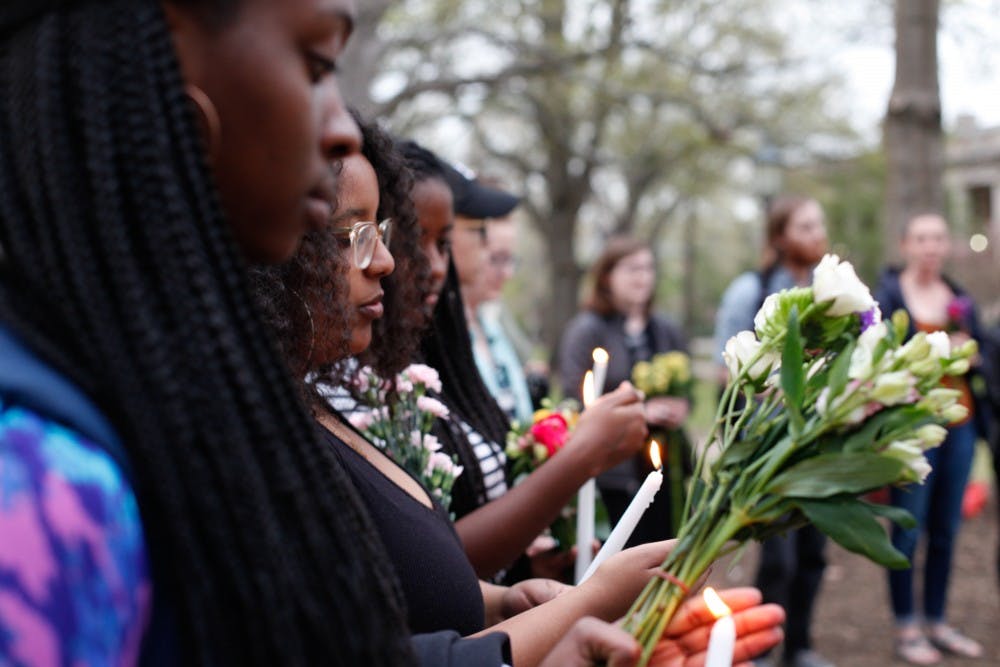In the wake of Saturday night's defacement of the Unsung Founders Memorial, UNC Black Congress held a vigil Thursday night to honor the founders.
“The defacement of this monument was felt strongly by our Black community and it is important in times like these that we come together,” said Betseat Tadiwos, a member of UNC Black Congress.
The monument was vandalized with permanent marker and urine on Sunday morning. The writing consisted of “racist and other deplorable language," according to the University. The graffiti also included threats against anti-racist activists Maya Little and Lindsey Ayling, according to the two activists' Twitter accounts.
“I had an eerie feeling that this was going to happen, for a very long time. I think even the administration knew that this was going to happen, because it was made publicly known on Facebook, on Twitter, that white supremacists, neo-Confederates including ACTBAC, were planning to deface this monument,” said Angum Check, a co-chairperson of UNC Black Congress.
The University has two warrants for the individuals involved, including a person affiliated with the Heirs To The Confederacy group. In addition to the vandalism on the Unsung Founders Memorial, a piece at Hanes Art Center was also defaced.
“When this was defaced, when activists Maya and Lindsey's names were placed on this, when the UNC administration continued to gloss over this with an empty and valueless email about what happened, we know what that means,” said Buka Ibeziako, a senior AAAD and sociology major.
To take back ground that was lost and honor the defamed, UNC Black Congress’ vigil recognized the legacies of the founders.
“We’re here because moments like these kind of remind us in the way of how students of color, specifically Black students on this campus, can be seen as disposable, can be seen as non-existent and can be seen as burdens to this University,” Ibeziako said.
Ibeziako said the people on the monument represent the Black individuals who poured themselves into institutions like UNC and the people memorialized on the monument put their bodies on the line to build the school and paved the way for Black students to be at UNC.



